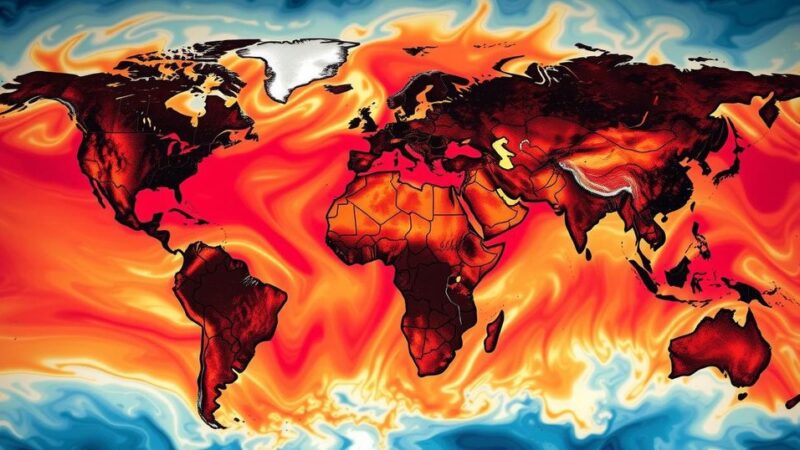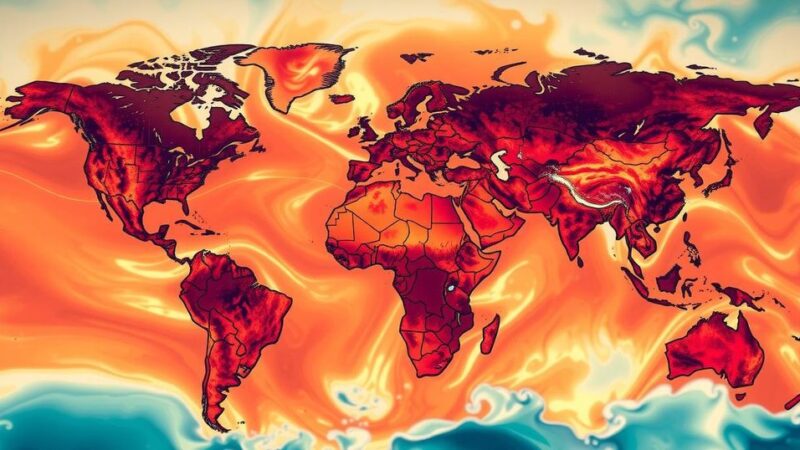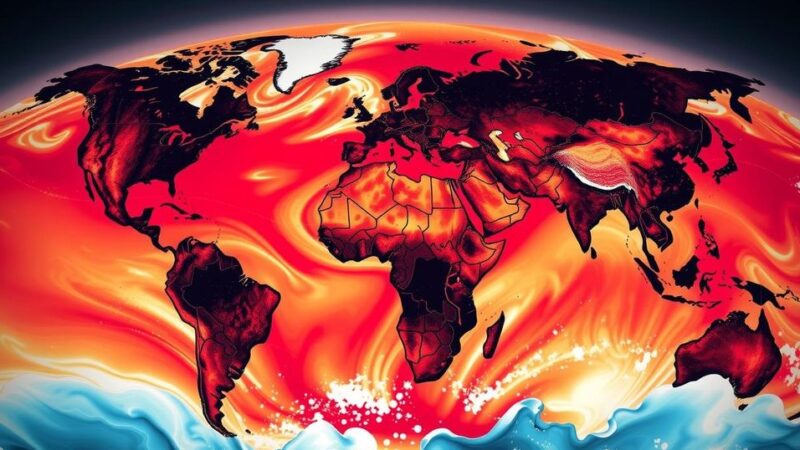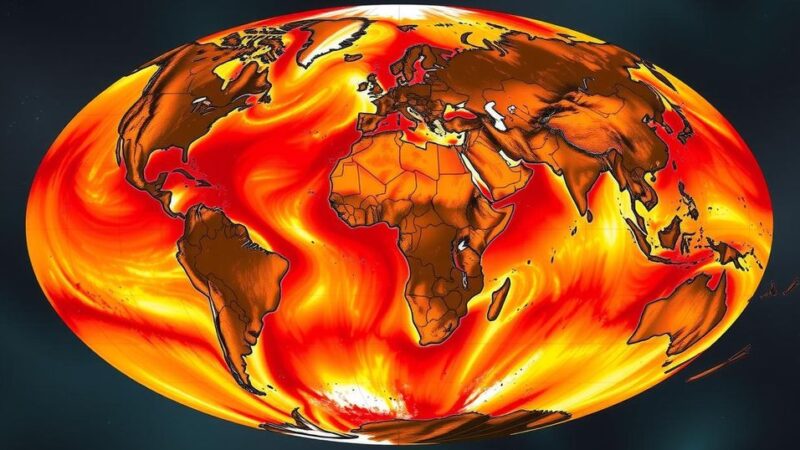In 2024, global temperatures surpassed 1.5C above pre-industrial levels for the first time, with a recorded average increase of 1.6C since 1850-1900. The year saw unprecedented temperature highs and severe weather disasters worldwide. Experts urge immediate action to reduce greenhouse gas emissions to prevent further catastrophic impacts of climate change, notwithstanding a possible political reluctance amid confirmed rising atmospheric CO2 levels.
Scientists announced that 2024 marked the first full year with global average temperatures exceeding 1.5 degrees Celsius above pre-industrial levels. This significant milestone, confirmed by the European Union’s Copernicus Climate Change Service (C3S), highlights the profound impact of climate change, with each month of the year recording unprecedented temperature highs. The average temperature during 2024 was calculated to be 1.6 degrees Celsius higher compared to the period between 1850 and 1900. Alongside this record, the past decade has witnessed increasingly severe warming trends, culminating in 2024 emerging as the hottest year on record.
While the C3S and Britain’s Met Office reported temperature breaches above the critical 1.5C threshold, it is essential to understand this number is a reference for longer-term averages, rather than a fixed cap. Carlo Buontempo, the director of C3S, emphasized that rising greenhouse emissions place the planet on a trajectory that could soon breach this Paris Agreement target. Despite the alarming rise in temperatures and the consequent effects observed worldwide—from wildfires to devastating floods—there remains potential for nations to mitigate further warming through substantial emissions reduction efforts.
The consequences of climate change are manifesting globally, affecting all nations irrespective of their wealth. In the United States alone, the year saw 24 weather-related disasters each exceeding $1 billion in damages, including hurricanes. Political commitment to climate action appears to be waning, particularly in the United States under the incoming Biden administration, which has been met with skepticism regarding climate science despite overwhelming global consensus.
The concentration of atmospheric carbon dioxide surged to an alarming high of 422 parts per million in 2024. Moving forward, experts predict that 2025 will also likely rank among the hottest years recorded, albeit possibly not surpassing 2024 due to variances in natural weather patterns. The situation demands immediate attention, as highlighted by academics urging for political accountability in combatting climate change.
This article discusses the alarming developments in global temperature trends, particularly the significant milestone reached in 2024 where temperatures surpassed 1.5C above pre-industrial levels, a threshold flagged in international climate agreements such as the Paris Accord. The Copernicus Climate Change Service provides critical data that captures these changes, illustrating the intensified impact of climate change on both natural systems and human societies. Various catastrophic weather events throughout the last year underscore the urgency of addressing climate change, showcasing its indiscriminate effects across wealth brackets and geographical boundaries. Additionally, this context serves to remind policymakers of their commitments to climate action amid growing emissions and insufficient political will in some regions.
In conclusion, 2024 has been a pivotal year in the discourse surrounding climate change, marking a historic breach of the 1.5-degree Celsius threshold. The escalating temperatures, along with widespread climate-related disasters, underscore both the urgency and necessity of immediate action from governments worldwide. While challenges remain, experts insist that it is still possible to alter the trajectory of global warming through concerted efforts to reduce greenhouse gas emissions. Effective policies and heightened political accountability are vital to mitigating the severe impacts of climate change in the years to come.
Original Source: www.straitstimes.com







